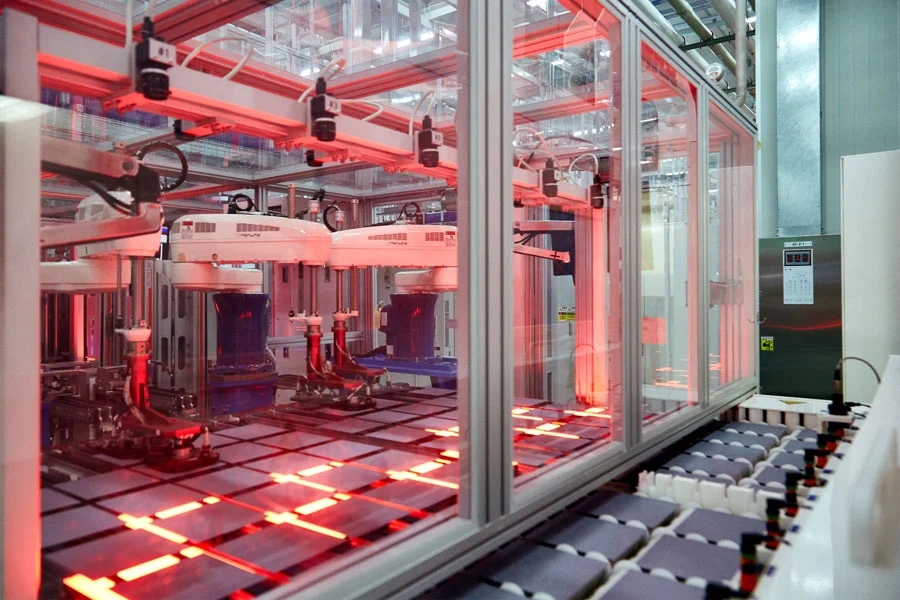Helmholtz-Zentrum Berlin and Qcells jointly coordinate four-year research and innovation project PEPPERONI
European pilot line for innovative photovoltaic technology based on tandem solar cells
PEPPERONI, a four-year Research and Innovation project co-funded under Horizon Europe and jointly coordinated by Helmholtz-Zentrum Berlin and Qcells, will support Europe in reaching its renewable energy target of climate neutrality by 2050. The project will help advance perovskite/silicon tandem photovoltaics (PV) technology’s journey towards market introduction and mass manufacturing.
PEPPERONI‘s goal is to identify and address the barriers to tandem solar technology’s market introduction, and ultimately lay the foundations for new production capacity in Europe. A pilot line enabling this development will be established at Qcells’ European headquarters in Thalheim, Germany. The project began on 1 November 2022, with the long-term vision of enabling European industrial leadership on PV production in the global market.
Within PEPPERONI, a pilot line for industrial-type tandem cells will be established at the Qcells European headquarters in Thalheim, Germany, and will feature innovative equipment, processes and materials to produce high-efficiency tandem cells and modules The project aims to scale up the active area of perovskite/Si tandems from the 1cm2 of today’s record devices to industry-relevant dimensions. PEPPERONI’s approach promises a fast and cost-competitive route to mass-production of PV modules of high performance and long durability.
Fabian Fertig, Director Global R&D Wafer & Cells at Qcells, said: “Qcells is proud to be part of the PEPPERONI consortium with its world-class technology partners. This research promises to break new ground in the advancement of perovskite-silicon tandem solar cell and module technology. At a time of unprecedented pressures on the current energy system, it is exciting to realise this first and transformative step towards industrial-scale manufacturing of next-generation PV technology in Europe.”
Bernd Stannowski, head of group Industry compatible processes, solar cells and modules at HZB added: “At HZB we have developed the tandem technology to world-record efficiency level on lab scale. We are now looking forward to cooperate in the PEPPERONI consortium with partners from science and industry to jointly scale this new and very promising technology up and transfer it to industry.”
Further information:
About the consortium
PEPPERONI combines European knowledge and expertise from fundamental research to small-scale testing and development of solar cells all the way to high-throughput industrial manufacturing of large solar modules. The PEPPERONI consortium counts 17 partners from 12 countries spanning across Europe.
Press release HZB, 23 November 2022
